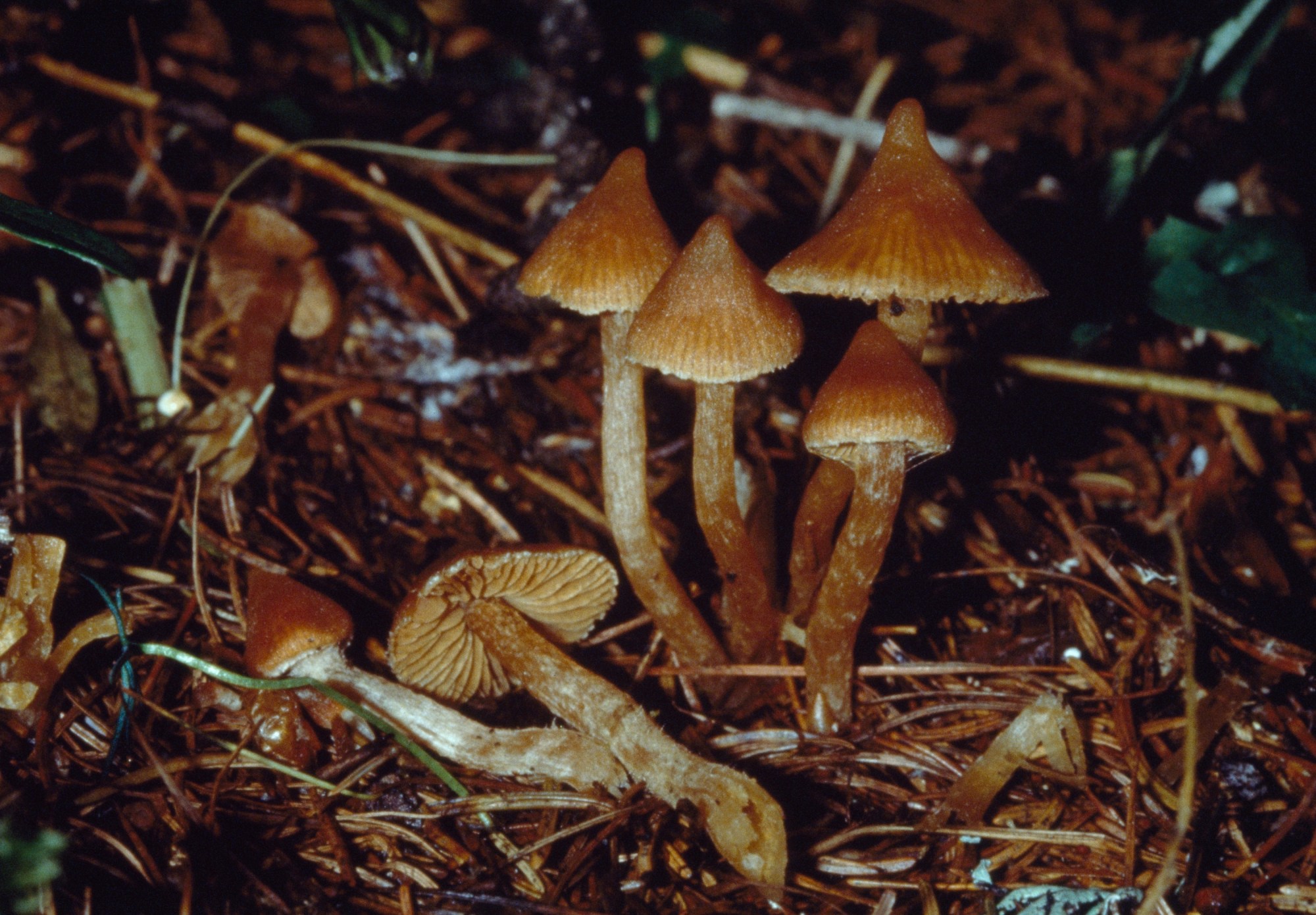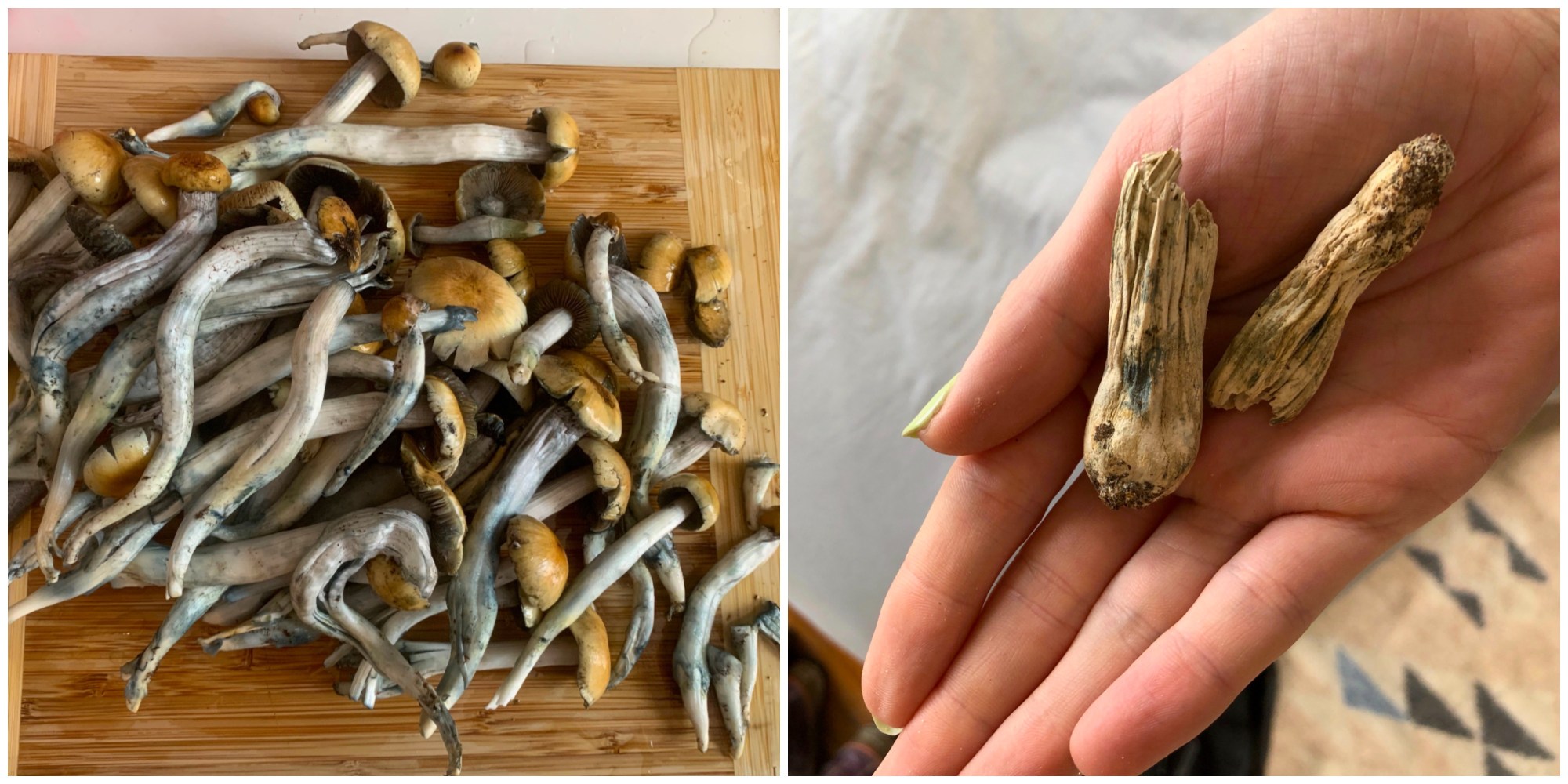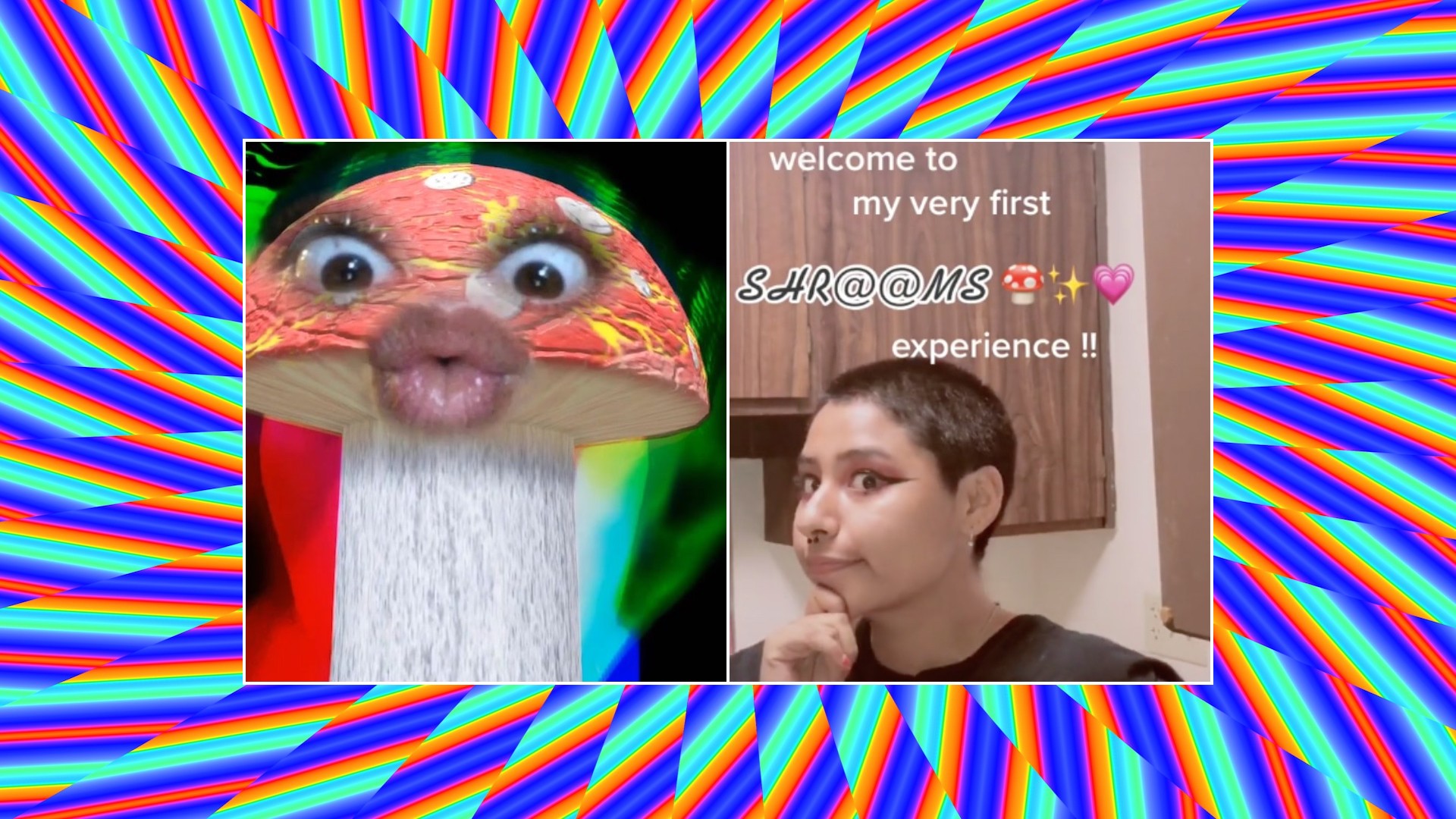Anyone thinking of experiencing any psychoactive substance, such as mushrooms and acid, should research the many different types, effects and risks, before proceeding.
From watercoloring and roller-skating to sourdough starters, COVID-19 has opened many of us up to new trends. For the last five months, people across the country have been experimenting with new activities or rekindling old passions, with the hope of decamping from quarantine monotony. These varying forms of refuge are being documented on Instagram stories, in Twitter threads and via TikTok.
In the last few weeks, we’ve seen an increase in one specific type of getaway: magic mushrooms, or shrooms. On TikTok, searching #shroomtok (or alternatively, #triptok) leads to dozens of videos of young people sharing trip playlists and how-tos for growing the psychedelic fungi, or documenting their own experiences on shrooms. Some are using the color customizer feature to simulate shroom-induced hallucinations, and a few are warning viewers of the potential risks of using psychedelics.
TikTok trends aside though, the American people, facing a global pandemic, a summer of civil unrest, an increasingly fascist state and a high-stakes election, are definitely tripping. And while shroom use dates back hundreds of years to indigenous cultures, their ability to foster community, induce joy and help users reimagine reality just might make them the perfect drug for this moment.
“I saw an uptick [in shroom use] before the pandemic, but then during the pandemic it blew up, because the space was there for people to just do nothing and be outside. It just worked,” says Haley*, a Los Angeles-based shroom edible distributor. “I’ve been calling this ‘the mushroom revolution.’”
The increased prevalence of the creativity-boosting substance extends well beyond my “For You” page. Last year, the Johns Hopkins Center for Psychedelic Research opened to much fanfare, and has already published research demonstrating the ability of psilocybin (the active ingredient in psychedelic mushrooms; combined with psychotherapy) to treat patients struggling with addiction, existential distress caused by life-threatening disease and treatment-resistant depression. Due to a lack of federal funding for such research, universities and other researchers rely on private donations from organizations such as the Heffter Research Institute, a non-profit that “promotes research of the highest scientific quality with [psychedelics] in order to contribute to a greater understanding of the mind, leading to the improvement of the human condition, and to alleviate suffering.”
The result is a slow but steady shift in public perception. Wordy soapmakers Dr. Bronner’s have publicly voiced their support for psilocybin research, pledging to donate $5 million to the endeavor between 2017 and 2022. Michael Pollan’s 2018 book, How to Change Your Mind, which explores the history and effects of psychedelics, as well as Pollan’s personal journey with them, topped The New York Times Bestseller List. Though psilocybin is classified as a Schedule I substance under the Controlled Substances Act (Schedule I substances are defined as having no currently accepted medical use and a high potential for abuse), 2019 voter initiatives in Denver, Berkeley, Oakland and Santa Cruz made shrooms the “lowest law enforcement priority,” a move currently being pursued by citizens of Washington, D.C. In May, streaming giant Netflix got in on the fun with Have a Good Trip, a documentary featuring celebrity tales of psychedelic adventures.
“People are starting to realize the positive effects of shrooms on your health—feeling less anxious, less depressed,” Haley, who has been taking shrooms for the last six years, tells i-D. “Feeling more at one with the world, at a time when everyone is super disconnected and socially distant. Even the most vanilla of people would probably try shrooms right now.”
Living through a global pandemic, under a government that refuses to take it seriously, has undoubtedly taken a toll on our collective mental state. Exacerbating this distress is the continued brutalization of Black and brown communities by law enforcement and other American institutions, and the subsequent anti-racist uprising, which has once again called attention to our need for police abolition, alternatives to capitalism, universal healthcare, protections for the trans community and general prioritization of community, among other things. For young people across the country, shrooms have first and foremost offered a means of escape from these terrifying realities.

“Having what people are feeling right now as my lived condition for so long, I absolutely did not think about [our present sociopolitical context] while tripping,” confirms Olamide, a 24-year-old Chicago student who did shrooms for the first time in May, under the new moon in Scorpio. “I deliberately did not think about death, or illness, or fascism, because it didn’t seem like it would be productive for me. In the times [that I’ve done shrooms] since, I still haven’t, especially when I’m with others. It’s been more about the community that I’m with.”
Bianca*, a political reporter based in Washington D.C., also focused her attention away from the news. “I felt more concerned with the present moment. Because of my job and my brain, I think about those things all the time,” the 24-year-old reflects. “[Doing shrooms] was the one time that I was able to just be like, ‘I’m here with the person I love, I’m looking at this beautiful tree, I’m walking through my neighborhood, I’m taking a bath.’”
As Haley mentioned, one of the most challenging aspects of COVID-19 has been social distancing and staying at home. Though there is currently no scientific data on how psilocybin might ease sociopolitical stress, anecdotally, shrooms at the very least seem to be bringing people together, in more ways than one.
“From mid-March until the end of May, I was home with my family, and then I came back [to Brooklyn] and my roommate is not here, so I’ve been pretty lonely,” confesses Mark*, a journalist. “Doing shrooms was an opportunity to spend time with two close friends whom I love and trust.”
RaFia, a multidisciplinary artist who normally does shrooms solo, took them and then vibed out with their friends in a virtual Twitch rave, which helped fill the void left by the temporary death of live music. Frank*, a Chicagoan working in startup tech, shroomed for the first time while on a guys’ trip to the Smoky Mountains in June. “It’s something we can talk about for the rest of our lives.”
Beyond the act of actually getting together to do shrooms is the metaphorical bonding that psilocybin can provide. Dominic*, another Brooklynite, has been growing his own shrooms for almost a year, and compares sharing the bounty with his friends to the intimacy of cooking them dinner. “It’s that same feeling.”
Dog walker Sydney has done shrooms twice during the pandemic, and felt a much goofier connection to a loved one. “[While on shrooms], my boyfriend and I took a shower together, and I peed in the shower. I thought I’d gotten away with it, but we had asparagus with dinner, so it smelled like asparagus pee, and we both laughed so hard we were crying.” She’s not sure if they’d been that close before, “but now I don’t care.”
According to the Heffter Institute’s website, psilocybin can produce important insights and memories, greater access to emotions and help provide perspective around life’s meaning. Such mental clarity has been increasingly (and understandably) difficult to access during this time. But some believe that psilocybin has helped them through the brain fog and over other mental health hurdles.
Dani, an advertising strategist who struggles with anxiety, first took shrooms while home in Miami. During her trip, she came to important realizations about her parents and her upbringing, and ultimately felt compelled to forgive them. Bianca, who deals with anxiety as well as disordered eating and exercise, both of which have been heightened in quarantine, was able to define her relationship with her boyfriend (a conversation she had previously been avoiding), and find a certain level of peace with her body. Meanwhile Olamide, who suffers from PTSD and wanted to do shrooms as a way to work through a recent break-up, felt able to “ask [herself] hard questions and receive non-judgmental answers,” and get back in touch with her sexuality. In an email, Dr. George Greer, co-founder and board chair of the Heffter Research Institute, notes that “depression will likely be the first medical indication for psilocybin approved by FDA.”

Our strange new world has given both newbies and seasoned shroomers the space to explore. Olamide points out that she may not have done shrooms without coronavirus, and that knowing she could and should stay inside was helpful and comforting. Frank sees the present moment as a perfect storm that pushed him to do them. “It was like, might as well add one more weird thing to my plate.”
Pablo, a 19-year-old retail worker, was also encouraged by our new normal to continue his shroom journey, which began in early 2020. “My motivation to try them again now came from being in such a different headspace, and actually having the freedom and time to do them,” the LA county resident explains. “Plus, I think shrooms change the way you think about what’s around you, so it’s almost more interesting to be where you always are [while on shrooms].”
Bianca concurs. “It felt like quarantine had been lasting for a million years, and I felt so trapped in it, like, this is gonna be life forever,” she remembers. “But then time fully melted and did not exist to me. I went on this trip to some other place without leaving the room. Time was not linear, and that was such a relief, to feel less trapped in the pandemic and less trapped in quarantine.”
Dr. Greer says that there are plans to research how psilocybin might help healthcare providers and people in social isolation during the COVID-19 pandemic. Even without that data, it feels safe to say that shroomers will continue to trip during these dystopian times and beyond. Mark is particularly excited about the latter.
“Were there to be a normal and better world in the future, that would make me feel even more comfortable doing shrooms.”
*Name has been changed to protect identity.

